Where Are They Now?
FASPE Fellows become major influencers in their respective fields. They combine their talents, expertise, and experiences with FASPE to lead with ethics and make a difference within their professions. In our monthly newsletter, we highlight an Alumni doing notable and admirable work in their professions. We invite you to learn more about them in the years since they participated in the FASPE Fellowship Program and see "Where They Are Now." Click here to sign up for future newsletters.

Sarah Grant
2018 Law Fellow
July 2024
Sarah Grant is an attorney in the Office of the Director of National Intelligence, on assignment from the National Security Division of the U.S. Department of Justice. She previously served as Counsel to the Assistant Attorney General for National Security. Prior to joining DOJ, she clerked on the United States District Court for the Southern District of New York and the United States Court of Appeals for the Seventh Circuit. Before becoming a lawyer, she was an intelligence officer in the United States Marine Corps.
She graduated from the United States Naval Academy with a B.S. in International Relations, earned an M.Phil. in International Relations from the University of Cambridge, and received her J.D. from Harvard Law School. In her free time, she is an avid endurance athlete and women’s sports fan.
Reflecting on FASPE, Sarah shared: "I am incredibly grateful that FASPE exists and believe it serves a critical need to develop leaders with a strong ethical compass, but I wish the historical lessons about reactionary politics, the corruption of democracy, and the slide into demagoguery and autocracy didn’t feel so acutely relevant.
In a recent conversation with David Goldman, he asked me if I believe in American exceptionalism, if such a belief is necessary given that my entire career to date has been in government service, first in the military and now as a civilian attorney. I gave a “both sides” answer. As a queer, Jewish woman, I know that there are few other countries in the world where, over the last 35 years, I would have had the same freedom and opportunity to live true to myself and fulfill my potential, and consequently I consider myself extremely fortunate to have been born here. At the same time, I am keenly aware that our national history is as much a story of oppression as it is a story of expanding liberty—it has always been a fight to secure the freedoms many of us enjoy. Equality, to the extent we now have it, has never been willingly conceded by existing power centers. And my vision for the United States, the version of the country I have been proud to serve, is at least in tension with—and in some respects irreconcilable with—the vision for the country held by a significant percentage of my fellow Americans. We share the country as a matter of geography but not social and political values. Our constitutional democratic system has, as a historical matter, generated broader social progress and human flourishing than other systems of government, but there is certainly no guarantee that the country will continue on that path.
You might be wondering how these musings relate to professional ethics, so I’ll get to the point. In late December/early January, I am slated to return to the National Security Division in the Department of Justice after having been on assignment to the Office of the Director of National Intelligence for nearly 18 months. The DOJ I know and have been privileged to work for has a strong tradition of independence from political considerations and is full of career civil servants of unimpeachable integrity who are committed to nonpartisan service (the same is true for ODNI and the intelligence community more broadly). But if campaign rhetoric and associated policy platforms are to be believed, DOJ’s mission and culture may soon be steered in a very different direction. And then I will have to grapple with what that means not only for the country but also for me personally.
At the FASPE reunion a few years ago, attendees heard from Erica Newland, who resigned from her position in the DOJ Office of Legal Counsel in 2018 after growing alienated by what she saw as, to quote a piece she wrote in the Washington Post, the Office of Legal Counsel “using the law to legitimize lies” and “fashioning a pretext, building an alibi” for unlawful or otherwise objectionable executive action. Whether or not I directly confront similarly obvious ethical questions in the National Security Division, I may need to consider (not for the first time in my career) whether in good conscience I can continue to be a part of a larger organization and government that is not pursuing American values, including ideas of impartial justice, as I understand them. As FASPE has taught all of us, we cannot shy away from these sorts of hard questions; we must be mindful of the results of systems and processes in which we voluntarily participate. We do not get to choose when our ethical codes are tested, but we do get to choose—and are accountable for—how we respond. "

Stav Ziv
2014 FASPE Journalism Fellow, Board Member
June 2024
Stav Ziv is both a FASPE alumna and a Board member. She provides thoughtful insight and expertise in alumni engagement, advancing FASPE’s public voice.
Stav Ziv is a contributors editor at CNBC Make It—commissioning and editing articles across verticals including success, work, money, and life—as well as a freelance journalist whose writing has appeared in Dance Magazine, The Forward, Fast Company, The Atlantic, and other publications. She was previously the deputy editor at The Muse, overseeing careers and work content, and a staff writer at Newsweek, where she reported stories for every section of the print magazine and website including culture, news, and science. Her work has been recognized with awards from the Society for Features Journalism, the American Jewish Press Association, and the Newswomen’s Club of New York. She graduated from Stanford University with a degree in history and a minor in dance and earned her master’s degree at Columbia Journalism School.
Stav share, "
Part of me still can’t believe FASPE exists. That was the first thought I had when I saw the fellowships advertised on my J school bulletin board more than a decade ago. The opportunity felt designed for me, a history nerd from childhood who’d been so fascinated by Anne Frank’s diary that my bat mitzvah gift was a surprise stop in Amsterdam to see the Anne Frank House. And an aspiring journalist who was only just beginning to grapple with the responsibilities of the role.
I recently had a chance to speak as a FASPE alum representative on a panel with Moisés Kaufman and Amanda Gronich, who wrote the incredible play “Here There Are Blueberries.” As I reflected ahead of the event, I thought a great deal about how FASPE has helped me interrogate what kind of journalist I want to be. FASPE has served as a reminder that small, daily decisions matter. They have consequences for our sources, our readers, our organizations, our industry, ourselves. They add up.
In some ways, the in-depth conversations we had about historical and contemporary professional ethics during our trip to Germany and Poland were overwhelming. There are so many ways to make wrong choices and do harm. But I’m so grateful to have had such a formative opportunity in FASPE that made me more aware and attuned. That gave me a foundation and frameworks with which I could grapple with complicated questions and difficult decisions. That allowed me to find community with other self-selecting journalists, lawyers, doctors, and seminarians—and later business and technology and design professionals—who are similarly inclined to ask hard questions and have tough conversations.
FASPE hasn’t only been on my mind when I’m at an alumni reunion or board meeting. It was also there, for example, when I was asked during the measles outbreak less than a year after my fellowship to try to land an interview with Andrew Wakefield, father of the anti-vaccine movement, and tried to write about him responsibly. It was there the year after that when I profiled a “Nazi hunter” figuring out how to continue this work with fewer and fewer perpetrators remaining to bring to justice. It’s been there as I’ve reported, written, and edited countless stories; whenever pressures for traffic have threatened to muddy the waters; and when I navigated a startup environment that wasn’t solely a news outlet. It’s there now, when I edit contributors and run thorough fact-checks. It’s always there, challenging me to make thoughtful choices, and I wouldn’t have it any other way."

Sarah Stillman
FASPE Journalism Faculty
May 2024
We typically introduce a FASPE alum; this month, we are pleased to highlight FASPE Journalism Faculty member Sarah Stillman, this year’s recipient of the Pulitzer Prize in Explanatory Reporting.
Sarah is a staff writer at The New Yorker, where she covers criminal justice, immigration, climate change, and more. She teaches narrative non-fiction at Yale, where she also runs the Yale Investigative Reporting Lab. She is a 2016 MacArthur Fellow. Stillman's work often focuses on profiteering–in prisons, jails, immigration detention facilities, and conflict zones. Recently, she's been reporting on extreme sentencing, winning a Pulitzer Prize for Explanatory Reporting for her coverage of the injustices resulting from the felony-murder rule and running a project with the Lab to document extreme sentencing in collaboration with local newsrooms nationwide. Stillman joined The New Yorker in 2012; that same year, her piece about labor abuses on United States military bases in Iraq and Afghanistan, "The Invisible Army," received the National Magazine Award for public interest and the Hillman Prize for magazine journalism. In 2019, she received another National Magazine Award for public interest, for her 2018 New Yorker piece, “No Refuge,” which documents how deportation can become a death sentence for asylum-seekers and other immigrants. A contributor to the best-selling anthology All We Can Save: Truth, Courage, and Solutions for the Climate Crisis, Stillman is currently reporting on the ways that climate change, migration, and labor intersect, as well as on communities pushing back against the injustices in county jails around the country. She is also interested in the consequences of privatizing basic government services, particularly in the justice system.
Sarah shares, "FASPE was a profound opportunity for me to think more deeply about complicity–both what it means to enact power in journalistic coverage of violence (with all of the complexities that attend that effort), and also what it means to try to understand the social and psychological forces that accompany human beings' violations of each other's most basic rights. It's so easy to simply label a form of injustice "systemic," but it's much harder to look deeply at how our individual choices structure and create systemic injustices. I'm grateful for how FASPE gave me a set of tools to inquire into that connection–tools that feel very relevant to the current work I'm doing to try to understand abuses in county jails around the country and other sites where profiteering has been placed above respect for individuals' well-being and even above their right to survival."
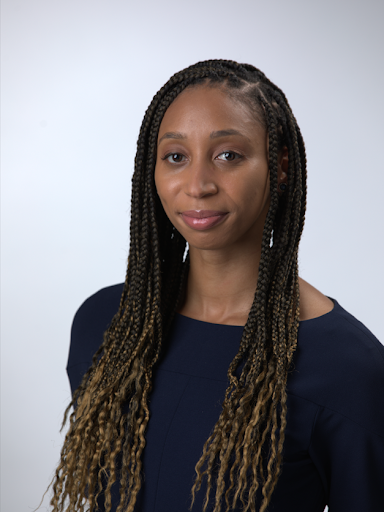
Jordyn Holman
2018 Journalism Fellow
April 2024
In Jordyn's words:
Since completing FASPE in 2018, I have continued on my career path of being a business reporter. As a business reporter at The New York Times, my aim is to make information about the economy and the consumerism that drives it accessible to those whose days aren't shaped by knowing how much a stock moves up or down each day. One way of doing this is by not only covering where people are shopping and what they are pursuing, but using those as jumping off points to look at what it says about us and our priorities.
I've written about how and why people are still buying Crocs, how Walmart—the world's biggest retailer—is teaching its managers to be more empathetic and how textile workers in North Carolina say fast fashion and trade policy in Washington is hurting their livelihoods. I travel extensively across the U.S. to interview executives, workers and shoppers because being on the ground and seeing how things are playing out in real-time is crucial to capturing what's taking place. You can read my work in The Times or hear me talking about the economy on Marketplace.
Jordyn shares, "FASPE has been a consistent community for me to tap into as I develop in my career. I view my fellow alums as trusted advisers. While I discuss ethics frequently with other journalists, FASPE has broadened my understanding of what kind of ethical concerns professionals in law and business face and how they weigh them. That has made me a stronger reporter because I am better able to understand my sources and those I interact with in the course of my reporting.
FASPE has also provided me a platform and the support to explore professional ethics here in the U.S. that I have long been interested in. I was honored to be on the planning committee for the first alumni trip where we went to Tulsa, Oklahoma. Our goal was to bring FASPE's mission close to home—literally. While in Tulsa, we studied the forced removal of the Cherokee people and the Greenwood Race Massacre and the impacts it has on the people and the city today. As a Black American, it was such a fulfilling trip to plan and it served the larger mission I have in my career of bringing people together to foster more conversation."
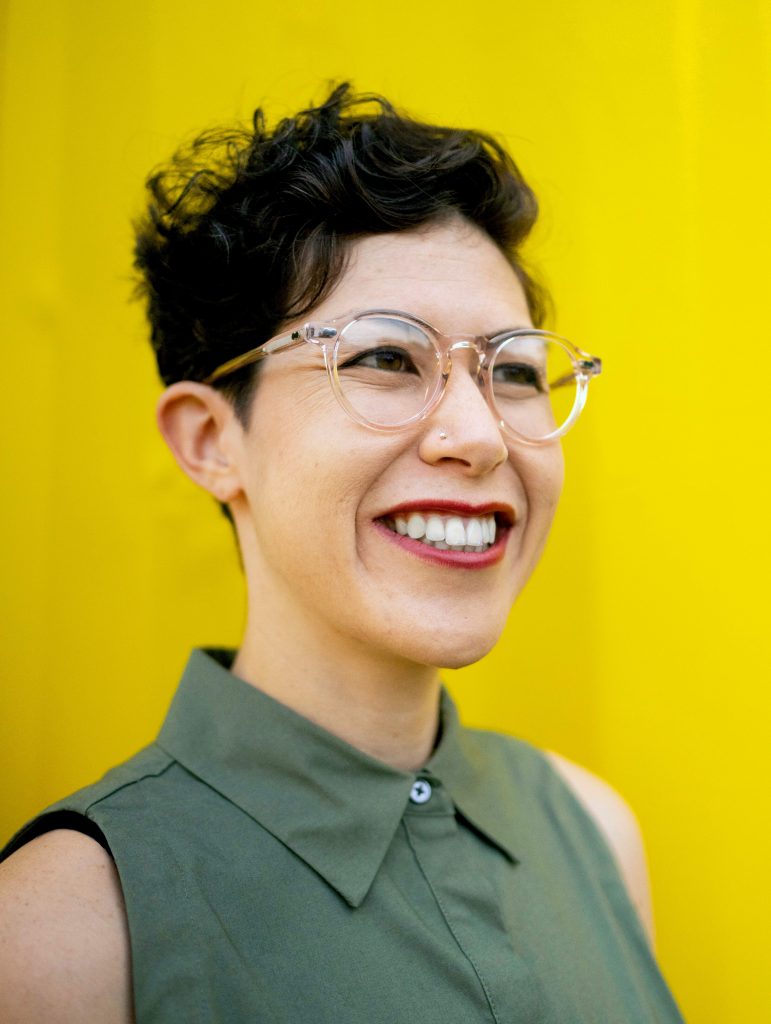
Rachel E. Gross
2016 Journalism Fellow
March 2024
Rachel E. Gross is an award-winning science journalist who writes about gender bias and marginalized voices in medicine for The New York Times, Scientific American, the BBC, and others. She is the author of Vagina Obscura: An Anatomical Voyage, a New York Times Editors’ Pick and finalist for the 2023 Andrew Carnegie Medal for Nonfiction and the PEN/E.O. Wilson Award in Literary Science Writing. Previously, she was a 2018-19 Knight Science Journalism Fellow and the digital science editor of Smithsonian Magazine.
Rachel shares, "FASPE provided an early spark for my interest in medical ethics, which has since grown into a larger desire to understand how the values of medicine trickle down to society at large. The opportunity to immerse myself in the history of the medical profession during the Third Reich, and to think openly and together with journalism and medical Fellows about the implications of this history for today, was invaluable. My FASPE experience helped me consider more deeply the role of doctors in today's world: as humans who, like all of us, encounter the world with blind spots and limitations. But also, as figures of authority and public trust who are shaped by a particular culture—one that deserves investigation. "
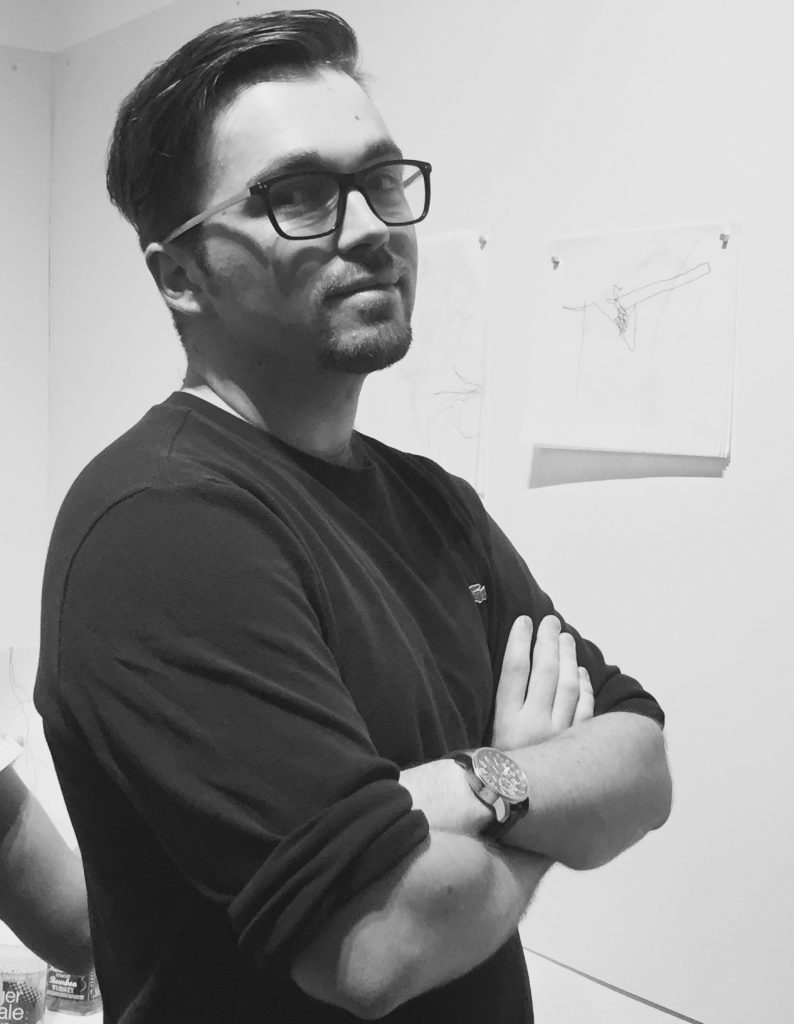
William (Will) Partin
2023 Design & Technology Fellow
February 2024
William Partin is a technologist and academic. He attended FASPE in Summer 2023 as part of the Design & Technology Cohort. As a researcher at the University of North Carolina, he focused on “the bad internet”: online conspiracies, harassment, and radicalization, etc. That work led him to the field of Trust & Safety (T&S) and, now, he works at YouTube on the team that builds and implements policies against hate speech. Needless to say, as he puts it, “there are no boring days!” He reports that he “...was attracted to FASPE out of a desire to think rigorously about the ethical challenges faced by T&S practitioners who, unlike many professions, have no unified code of ethics. Yet whether or not we name them as such, ethical standards are, like code, embedded in software and the workflows that rely upon the software.”
Will shares, "Along with some great new friends, FASPE left me with questions – not the kind you answer, but the kind you live with. Here’s one(ish). In Berlin, Thorsten noted that one paradoxical legacy of the Third Reich is the field of medical ethics. Now, you could say 'But they weren’t ethical! Nazi hypocrites!' But that's an easy and, frankly, zero-stakes argument. The harder question is this: what does it mean to do ethical inquiry if 'ethics' is just as capable of collaborating with evil as it is confronting it? I have my thoughts. But for now: what FASPE’s approach to ethics taught me is that ethical inquiry, while vital, is no silver bullet. We cannot simply hope to divide 'right' from 'wrong' and shuffle over to the 'right' side, convinced of our own goodness. Instead, we must keep asking ourselves better questions: how 'right' and 'wrong' are produced historically, where we are positioned within them, and how they may yet change, whether for better or worse."
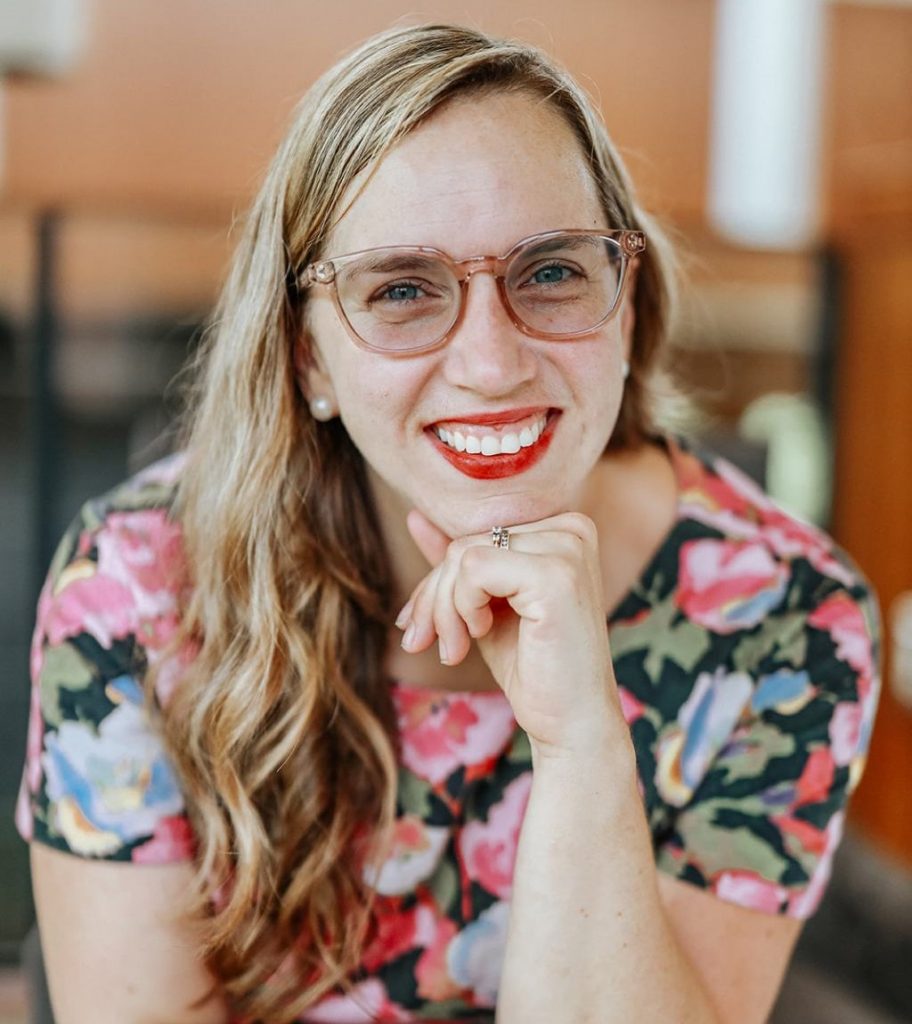
Mary Nickel
2017 Seminary Fellow
January 2024
Mary is currently Instructor of Philosophy at the University of South Carolina, Columbia. There, she is currently teaching a course called "Communicating Moral Issues," which considers how we might talk with one another about today's most contentious topics: gun control, abortion, universal health care, and affirmative action. She received her PhD in Religion, Ethics, and Politics from Princeton University in 2023. Mary’s research integrates religious ethics and political philosophy. She tends to focus on questions concerning systemic injustice, ethical obligation, and human agency.
Mary’s current project, “Matrices,” focuses on what pregnancy and motherhood can teach us about social agency and collective responsibility. She shows how our coming to be within and through another person reveals our fundamental sociality. For a short overview of her research, watch this three-minute video.
Mary is also seeking ordination in the Presbyterian Church (USA).
Mary tells us that, given her interest in complicity and systemic injustice, she was especially delighted to join the 2017 FASPE Seminary cohort's fellowship in Germany and Poland. “It was an honor to think alongside other brilliant minds about the perverted ethics of the Nazi regime and the failure of the public–and, in particular, clergy and other professionals–to curtail that monstrous movement,” she shared. Mary reports that she “has used the concepts she explored alongside her FASPE cohort in her research, teaching, and preaching repeatedly in the years since her fellowship.”
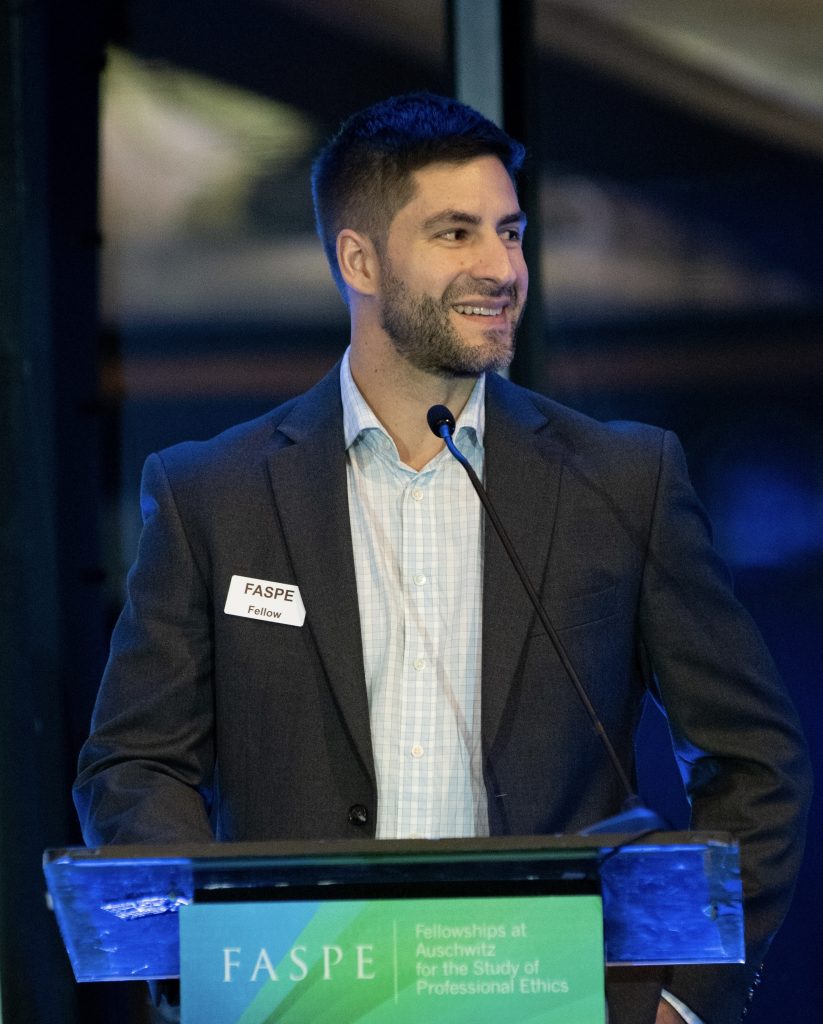
Isaac Todd
2019 Business Fellow
December 2023
Isaac is Chief Legal Officer at Auramet International, a physical metals merchant and investment firm focused on the precious and battery metals supply chains. From EVs to solar panels, Isaac aims to develop secure sources of critical minerals underlying the green energy transition and key technologies of the future.
Prior to Auramet, Isaac was an attorney at the law firm Cravath, Swaine & Moore and also served on active duty as a U.S. Army officer specializing in reconnaissance and counterterrorism.
An advocate for human rights and the rule of law, Isaac chairs Human Rights First’s emerging leaders advisory board and is currently focused on strengthening democratic institutions in the United States and abroad.
Isaac writes: "FASPE takes a seemingly alien evil and introduces us to perpetrators of the Holocaust who were not so different from you and me. We learned how ordinary people can rationalize active participation and passive acquiescence to crimes they would otherwise have considered abhorrent. The Holocaust occurred, not by some inexplicable evil, but through a series of decisions made by professionals like us that progressively normalized violations of basic human rights and values. FASPE left me with greater moral humility and a warning to guard against our inherent ethical fallibility.
I’m drawn to challenges without obvious “right” answers. Many of these issues present moral complexities, a balancing of various objectives and values, and may require selecting the best of less-than-ideal paths. Making incremental progress in these areas can have significant positive impacts. However, FASPE’s warning reminds me to implement guardrails to assist in navigating these moral uncertainties.
FASPE heightened my awareness of ethical blind spots and stressed the importance of systems for sound decision-making. I now periodically step back from day-to-day activities and try to reflect on my trajectory with a more intentional, objective perspective. My FASPE cohort is a trusted sounding board willing to engage difficult topics, whom I reach out to for dispassionate advice grounded in shared values. Ultimately, FASPE taught me that it isn’t sufficient to do my best in the moment. Rather, it is imperative to anticipate ethical challenges and, by laying the groundwork now, set myself up to make the right moral choices in the future—particularly when doing so is hard."
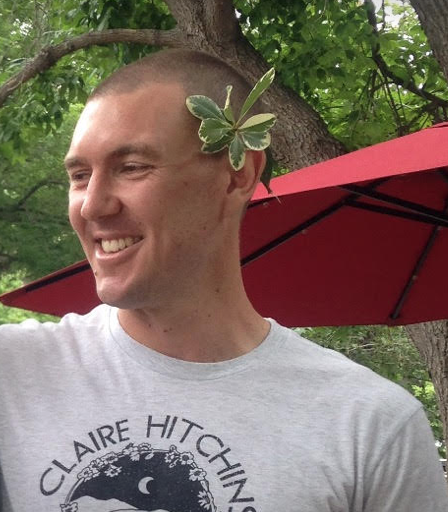
Eric Martin
2015 Seminary Fellow
November 2023
Eric teaches theology at Loyola Marymount University and UCLA in Los Angeles. His new book, The Writing on the Wall: Signs of Faith Against Fascism, explores the theologies of those who organized against Nazis and against the KKK in Charlottesville, Virginia. It combines on-the-ground-stories, biblical exegesis, and interviews with people like Rabbi Mordechai Liebling and Dr. Jalane Schmidt to ask what it means to love and pray as religious communities in the midst of rising fascism. All proceeds go to survivors of the car attack in Charlottesville on August 12, 2017.
Eric writes: "This book grew directly out of the questions FASPE placed before us. Grappling with how to connect our professional vocations and combating evil when our institutions fail to respond took on immediacy when fascists began organizing for Unite the Right in our town of Charlottesville. FASPE offered not only a summer of space for personal discernment but a community for the long haul. Through continuing conversations with people on my trip like Rabbi Jim Ponet and Jaye Starr, I could better discern my role in the interfaith clergy group that coalesced against the alt-right. And when the town gathered to pray in a sunrise service before what became a white supremacist terror attack, I sat with fellow FASPE Alum Liz Andrasi in the pews. FASPE in this sense became both an invaluable experience and people I love. And as a teacher of theology, particularly through my course on Religious Fascisms & Antifascisms at UCLA, I can wrestle with the insights, questions, and urgent warnings of FASPE with a younger generation."
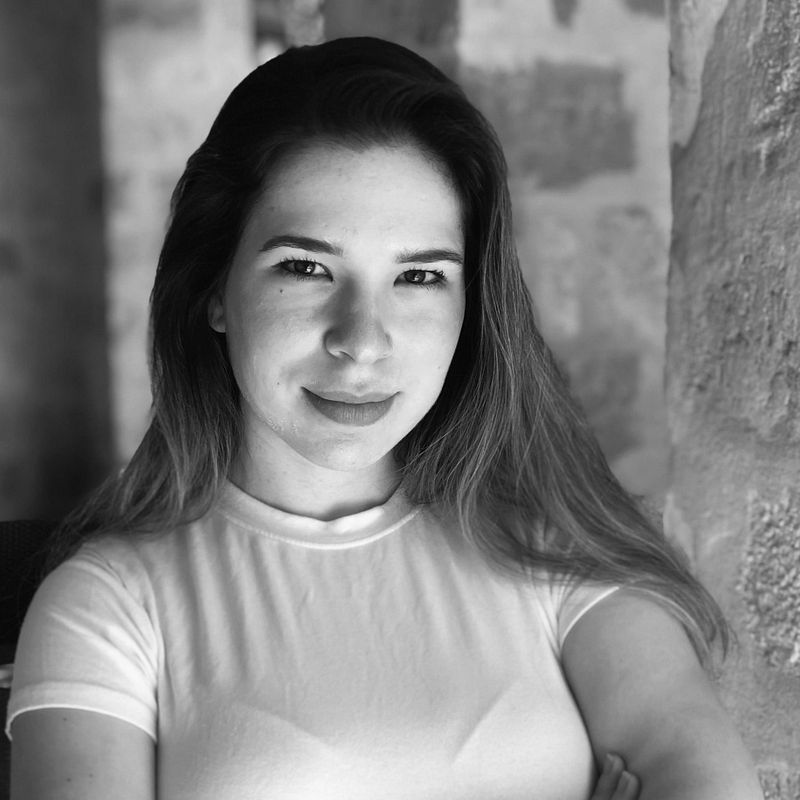
Yemile Bucay
2017 Journalism Fellow
October 2023
Yemile Bucay is an independent journalism risk and security advisor working to promote a culture of safety in the profession in order to have a sustainable, resilient, and free press. She is currently a consultant for PEN America's Freedom Expression Programs and previously was BuzzFeed's Risk & Security Manager, where she worked with staff and freelance journalists from BuzzFeed News and HuffPost. She was also a Fellow in the International Women’s Media Foundation's Next Gen Safety Trainers Program, a cohort of media security professionals trained for the newly emergent risks faced in media today.
She has worked with journalists reporting from high-risk environments including Haiti, Afghanistan, wartime Ukraine, Mexico, Nigeria, China, Syria, and beyond. Early in her career, Yemile was a freelance journalist writing about immigration. Her work has appeared in the Columbia Journalism Review, Vice, Newsweek, Tablet, and Rest of World. She has also taught as an adjunct assistant professor at Columbia.
Yemile received a B.A. in Humanities from Yale University and a Masters in Journalism from Columbia University’s Graduate School of Journalism.
Yemile writes: "The first thing I think about when reflecting on FASPE is the community it gave me which yielded some of my most meaningful friendships, that I sometimes forget that they originated somewhere near Auschwitz. FASPE also offered me the space I'd sought while studying and practicing journalism to center ethics as our lens for navigating the profession. FASPE's framework was and continues to be transformative for me in that it gave me a vocabulary to understand the difference between personal and professional ethics. This simple but profound distinction has allowed me to notice when those two ethics are not aligned in my life and then resolve that tension."
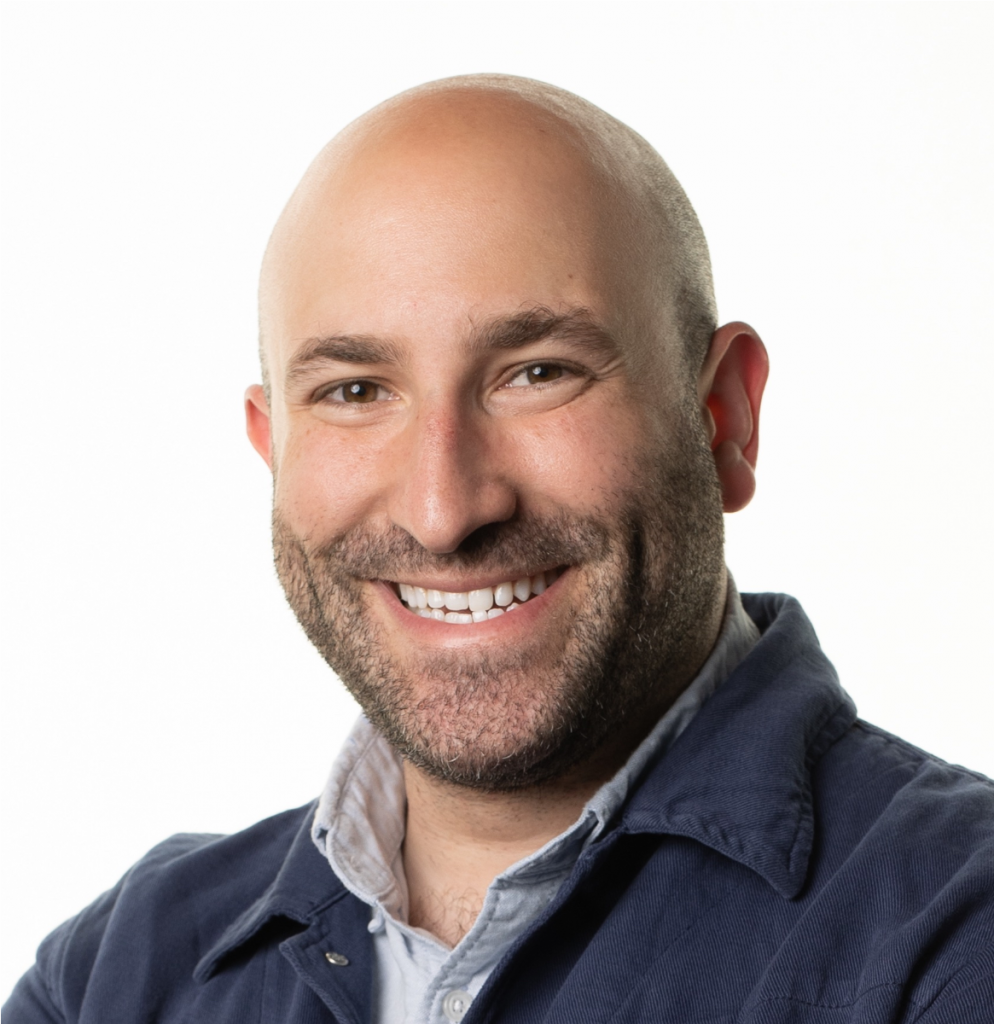
Nate Silver
2019 Business Fellow
September 2023
Nate Silver is Head of People at Adonis, a healthtech startup focused on solving the operational challenges that impact the integrity of healthcare's revenue cycle. Nate began his career as a theater director, serving as Managing Director of Jackalope Theatre in Chicago and working as a freelance director on and off-Broadway and around the world. Following his MBA, he was in Deloitte's Human Capital practice, helping global organizations navigate the future of work and address their most complex workforce challenges, and was Head of People & Culture at The Org. Nate has an AB in Drama from Vassar College, an MBA from the Yale School of Management, and was a 2019 FASPE Business Fellow.
Nate writes: "FASPE stands out as a formative experience. The fellowship shaped how I view my role as a professional and served as a perspective-altering bridge between my formal education and re-entry into the business world. I love the important role that art continues to play in FASPE, as one of several lenses through which to process, understand, and unpack complex topics. As a career changer who came to business through the arts, FASPE's multidisciplinary approach to the curriculum is one of many reasons the experience is so powerful."
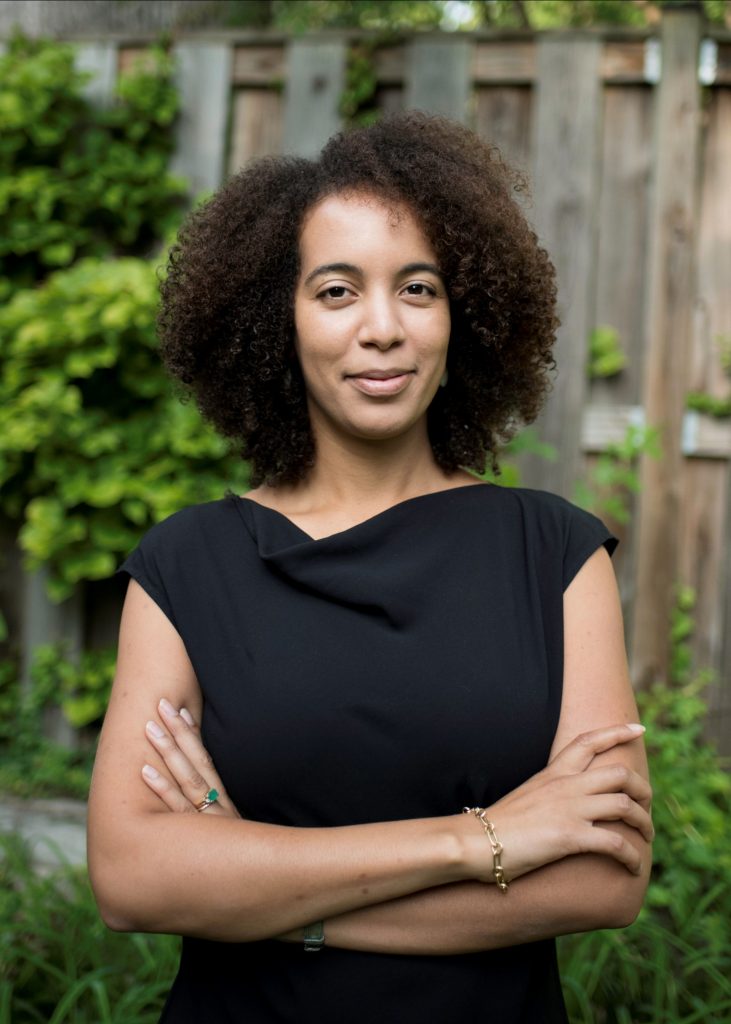
Farah Peterson
2011 Law Fellow
August 2023
Farah Peterson was a 2011 FASPE Law Fellow. Farah is now a Professor of Law at the University of Chicago Law School—focusing on the related fields of statutory interpretation and Constitutional Law. She is thus quite familiar with the ethical limits of lawyering discussed below. Farah embodies the FASPE nexus of the humanities and professionalism. She holds a PhD in American History from Princeton; apart from her scholarly writing, she has published essays, fiction, and poetry. After graduating from Yale Law School, Farah clerked for Federal Appellate Judge Guido Calabresi and Supreme Court Justice Stephen Breyer.
Farah writes: "One thing that struck me powerfully during the FASPE trip was how many of the archival materials on display in sites we visited were simply the legal detritus of a well-run administrative state. These were the materials that lawyers and professionals created to keep an atrocity running within the bounds of their formal law. FASPE therefore served an urgent reminder of the importance of individual conscience as a constant check on positive law.
The enduring lesson of that experience was that individuals administering legal systems must not allow themselves to become so enamored of the logic and moralism in abstract legal reasoning that they lose track of their own internal compass. Instead, if we are relying on or making legal arguments, we must consistently ask ourselves not only whether we are correct about the law, but whether we are comfortable with the nation that those arguments build."

Michelle Recinos
2023 Journalism Fellow
July 2023
Michelle is a Central American journalist and writer based in El Salvador. She is a graduate of Universidad Centroamericana "José Simeón Cañas" where she received her Bachelor's degree in Social Communication. Currently working as an investigative journalist at La Prensa Gráfica, she covers environmental justice topics, and has also worked on issues of women's rights, violence and justice. She has experience working with the Pulitzer Center and the International Women's Media Foundation as a grantee.
Michelle writes: “The FASPE experience was rewarding and challenging at the same time. In FASPE, In addition to getting to know cities full of history and beauty, I had the opportunity to get closer to the atrocities committed by the Nazi regime—as we try to understand what made them possible and how, in some way, we can contribute, from our professions, so that this type of horror remains only as a dark page in the history of humanity. It is a complex way of approaching ethics and analyzing it outside of classrooms and academic definitions. FASPE is an experience that moves you and, above all, that makes you question everything you believe to be correct up to now.”
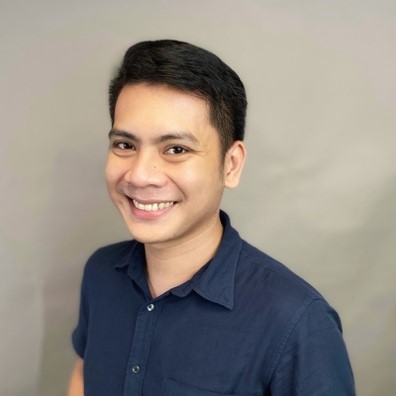
Bonz Magsambol
2023 Journalism Fellow
July 2023
Bonz is a multimedia reporter at Rappler, a Filipino social news network and winner of the 2021 Nobel Peace Prize, where he mainly covers the Philippine Senate. He is a graduate of the University of the Philippines, where he received his Bachelor of Science in Development Journalism.
Bonz writes: “FASPE made me reflect on why journalism matters especially in democratic societies like the Philippines, where the profession has been attacked countless times. In FASPE, we discussed how journalists during the Nazi era turned a blind eye on the killings because most of them believed the propaganda being pushed for by the Nazi government. Only a few scrutinized and dug deeper into the events. This draws parallels with what’s happening right now in the age of massive disinformation. As journalists, the buck stops here—what do we do? How do we move forward from here? Do we just let the disinformation and misinformation thrive, eroding trust in the media? Stepping back should only be the last resort and pushing back matters when the public’s right to know is under siege.”
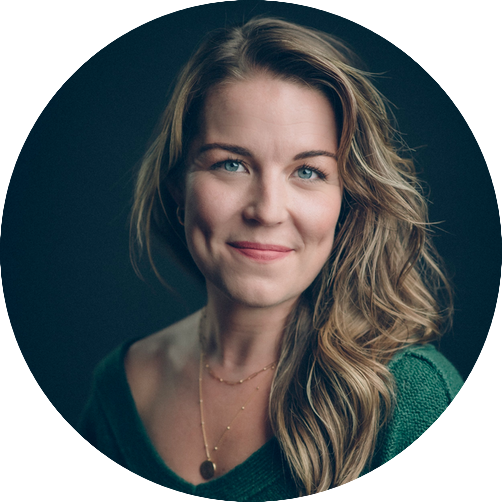
Natalie Lampert
2016 Journalism Fellow
June 2023
Natalie Lampert is a journalist whose reporting focuses primarily on women’s health and the fertility industry. A former Fulbright scholar, she has written for The New York Times, The New York Times Magazine, The Atlantic, The Guardian and The New Republic, among other publications. Her book, The Big Freeze: A Reporter's Personal Journey into Egg Freezing and the Quest to Control Fertility, will be published by Ballantine/Random House (January 2024). A work of narrative nonfiction, The Big Freeze investigates the frontiers of fertility science, reproductive technologies and the femtech industry.
Natalie writes: “I'm deeply appreciative of FASPE's ongoing impact in my life, both personally and professionally. I was a journalist in FASPE's 2016 cohort and was privileged to make lifelong connections that have made the past several years of freelancing and book-writing less isolating than they would have been otherwise.
My experience also greatly helped me professionally—networking through my FASPE connections was particularly helpful in identifying a fantastic literary agent and in receiving a substantial book grant from the Alfred P. Sloan Foundation. As a journalist who reports primarily on women's health and the fertility industry, I regularly grapple with ethical issues pertaining to the state of reproductive rights in the U.S. as well as the not-so-distant future implications of fertility technologies—both the promises and the perils.
Early on, FASPE helped me approach difficult ethical questions with more nuance and confidence than I would have had otherwise as an early-career journalist. Over time, what I learned and gained during FASPE has allowed me to contend with the ethics involved in my work—both in terms of what I write about and how I report—in a much more informed light. Put simply: I'm a better and more critical journalist thanks to FASPE!”
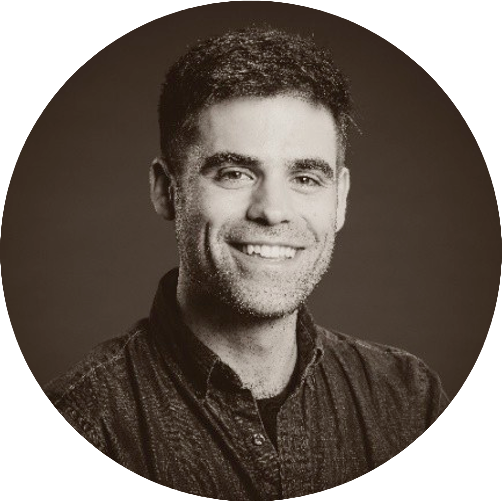
Marc Toledo
2018 Business Fellow
May 2023
Marc Toledo MBA, CISSP is a postgraduate researcher at Imperial College London, serving as the cybersecurity expert-in-residence at its Management and Entrepreneurship Department. Previously, Marc worked for over a decade in both public and private organizations. He served as Director of Cybersecurity Strategy and Operations at EY and as Product Manager at Apple, as well as in different tech-related senior positions in the corporate sector, government, and financial institutions such as the World Bank. He has also consulted as a strategy and product specialist for startups and non-profit institutions in Europe, the United States, and Latin America.
Marc studied Computer Engineering at the Polytechnic University of Catalonia, earned his B.A. in Translation and Interpretation of Russian and English at the Autonomous University of Barcelona, undertaking part of the program at UCLA, and graduated from the MBA program at Duke University’s Fuqua School of Business. He has obtained the CISSP (Certified Information Systems Security Professional) certification. Currently, he is pursuing a PhD in Strategy and Organizational Behavior at the Imperial College Business School, questioning the ethical, behavioral, and psychological implications of AI in cyberwarfare and civilian cyber professionals. He intertwines this focus with research on gender, social inequality, crime forensics, and privacy law.
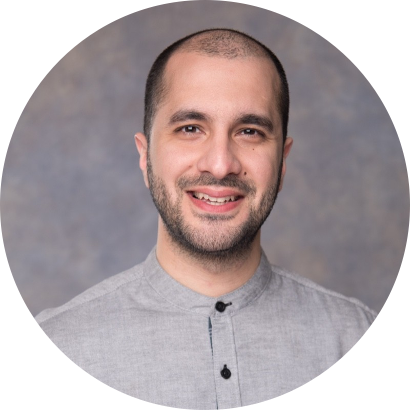
Imam Jawad Bayat
2015 Seminary Fellow
April 2023
Imam Jawad Bayat, MA, ACPE Certified Educator was a 2015 Seminary fellow.
Jawad serves as the Associate Director for Clinical Pastoral Education (CPE) at Penn Medicine Princeton Health, NJ. He manages the pastoral care for their behavioral health inpatient and outpatient sites, supervises chaplain interns and residents, and directs the CPE program. Jawad graduated from the Islamic Chaplaincy program at Hartford International University in 2015 and completed his ACPE educator certification through the Cleveland Clinic in 2020. Currently, he is pursuing a doctor of ministry in professional education and leadership at the Ecumenical Theological Seminary.
About his experience with FASPE, Jawad says:
“I am fortunate to have had the opportunity to be a 2015 FASPE Seminary fellow and to be in fellowship with my peers. This allowed for an unforgettable experience of transformational learning by traveling to the different sites using the power of place and engaging the varied educational methodologies. It strengthened my ethical reflective abilities and capacity to be courageous as I professionally navigate the burgeoning field of Islamic chaplaincy through the speciality of Clinical Pastoral Education. FASPE helped bring perspective to how ordinary ‘good professionals’ could do such terrible things and how no human being is or can ever be immune from such potentiality, a lesson I engage when I teach professional ethics in our CPE program’s curriculum. This immersive experience viscerally taught me and reminds me regularly how my power is both a gift and responsibility.”
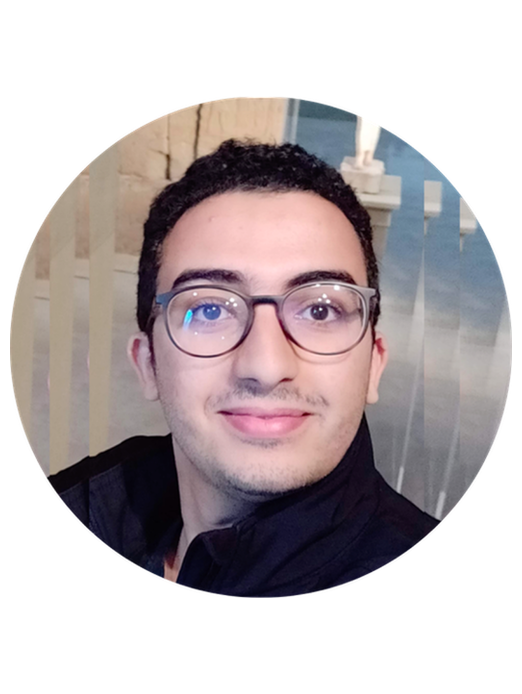
Houssam Kherraz
2022 Design & Technology Fellow
March 2023
Houssam, a native Moroccan, was a 2022 Design & Technology Fellow. Currently a software engineer at Kensho, an AI company working on structuring unstructured data (audio, documents, etc.) for finance firms, his work involves building machine learning tools and infrastructure to make data science teams more effective in their work. In the past, he has worked on self-driving cars and facial recognition technology. Houssam holds a masters and bachelors in Computer Science from MIT, where he focused on how to improve and understand AI systems to prevent harm.
Houssam reports “I am quite worried about the unintended consequences of AI and of its rapid progression of capabilities. Beyond the potential rapid job loss, we already know that these systems can exhibit a lot of social bias (racism, sexism, etc.) and spout completely false statements with high confidence and convincing justifications. Yet, tech companies and nation states seem to be locked in an ‘AI arms race,’ obsessed with overall performance rather than failure modes and societal guardrails. To use an analogy of a friend of mine, the current situation is akin to building the fastest car without brakes. While brakes technically slow you down, they actually enable us all to go faster. Without good brakes, we would all be driving too slowly or not at all to avoid a crash. Brakes give us the confidence to drive faster and safer. Similarly, AI safety measures will help us go faster and further in the long run. I only hope that the crash that will make the industry realize this won’t be too damaging.
“I want to leave you with the results of a survey and a question. The 2022 Expert Survey on AI asked machine learning researchers last summer: what is the probability that the long-run effect of advanced AI on humanity will be extremely bad? 48% of the research professionals they surveyed gave at least a 10% chance of an extremely bad outcome. What do you think is the psychology of these professionals in their approach to their work?”
Houssam reflects: “One way to measure the impact of an experience is to consider how often we find ourselves reflecting on it. Since my fellowship trip in June, I have frequently spent time looking back on my FASPE experience and unpacking its lessons. FASPE taught me, more than any other experience, about the power of place and the fallacy of being a ‘bystander.’ The focus on the perpetrators of Nazi Germany’s professional class made it crystal clear to me how the motivations, thinking patterns, and excuses for enabling "the system" are not so different from those prevalent in our own professions today. This realization was scary and powerful. It further highlighted for me the importance of constant self-reflection and self-critique. Smart professionals can be incredibly good at fooling themselves with intricate rationalizations, or at least I know I can be. Having a community of other professionals in FASPE who can push me, keep me honest, and with whom I share a powerful emotional experience is extremely valuable to me. I hope it will make me more courageous and more likely to uphold high ethical standards in my profession. I am very grateful to be part of the FASPE community.”
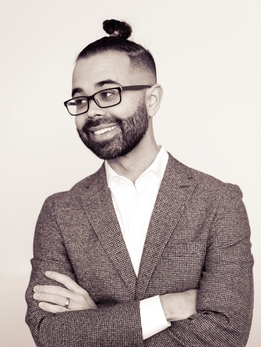
Jordan Loewen-Colón
2014 Seminary Fellow
February 2023
Jordan was a 2014 Seminary Fellow. He is currently serving as the AI, Ethics, and Data Justice Fellow at Queen’s University in Kingson, Ontario, Canada. In this role, he combines philosophy and data science to theorize human-AI interactions with respect to questions of metaphysics, technology, and healthcare.
The primary object of his research is an AI diagnostic tool called the "Digital Cancer Twin” currently in development at the Center for Health Innovation. This fellowship began in the summer 2021 as he was finishing his PhD dissertation in Religion at Syracuse University entitled “Virtual Reality, Religious Experience, and Digital Dualism.” His research specialization involves exploring the metaphysics of 21st-century digital technologies like virtual reality and AI in North American contexts.
Through this work, he questions how emerging technologies reconfigure and disrupt assumptions about embodiment, subjectivity, and other values rooted in American Protestantism, especially its more aesthetics-oriented and mystical movements. Some of this work is already available in research journals with more to come in the soon-to-be-released DCT Project Podcast. So stay tuned!
In Jordan’s words: “FASPE was such a grounding experience for how I perceive reality and played a large part in my interest in studying the consequences of how humans construct “realities” and induce altered states of consciousness.
“The program also helped me understand the role of religion in this process. With each historical example, it became clearer that religion is at work in every process that humans find ourselves a part of. Whether it be politics, education, media, science, and on and on. Religion can be fiery and dramatic, thick as culture, or banal and hidden in the everyday. By virtue of its hiddenness, we often do not notice how it works in and through us or how it gets taken up, like other human technologies, to dampen or extend our activity in the world.
“I think back often on all those important conversations we had in our small groups after exploring the horrifyingly “sacred” spaces full of so much pain. How we would gather together to grieve and process, to share our frustration at trying to integrate the stinging and contradictory awe and wonder. Shaking our collective heads, holding hands, and encouraging each other to imagine and activate a better future, informed by the trauma of the past.
“Ultimately, FASPE helped me realize how vulnerable our perceptions of reality can be, while also giving me the tools of deep and profound hope for how we might heal and protect the things that matter most.”
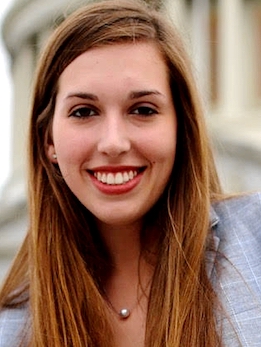
Bella Ryb
2022 Law Fellow
January 2023
Bella was a 2022 Law Fellow. She is currently a 2L at Stanford Law School and the incoming president of Stanford Law Review Volume 76. This spring, she will participate in Stanford’s Supreme Court Clinic. An aspiring legal academic, Bella intends to dedicate her career to theorizing the intellectual history and normative political content of the law. She has a special interest in how the law intersects with and shapes cultural understandings of gender, sex, and social class. In April at the Midwest Political Science Association's annual conference, she will present a forthcoming paper on how so-called “sex exceptionalist” reforms to intellectual property and contract law will help promote the sexual autonomy of pornography performers.
In Bella’s words: “FASPE was a sobering illustration that the law itself is not a static, dependable bulwark of justice but a tool that embodies and gives force to the commitments of those who create and enforce it. Developments in the law, then, always carry with them the risk of harm to individuals, communities, and crucial values.
“But despite the overwhelming grief and despondency which washed over me at many of the sites we visited, FASPE was ultimately a source of great hope. The earnest and creative discussions I shared with so many brilliant young professionals and exceptional faculty reminded me that while the law can promote violence, it can also be a source of progress and healing. As an aspiring legal academic, I look forward to theorizing novel understandings of the law which embody this outlook and offer pathways toward a more just legal system.
“I am deeply grateful that I had the opportunity to participate in FASPE at such a pivotal moment in my legal education. I genuinely believe that the legal profession would be a better place if more attorneys could share in that experience.”
